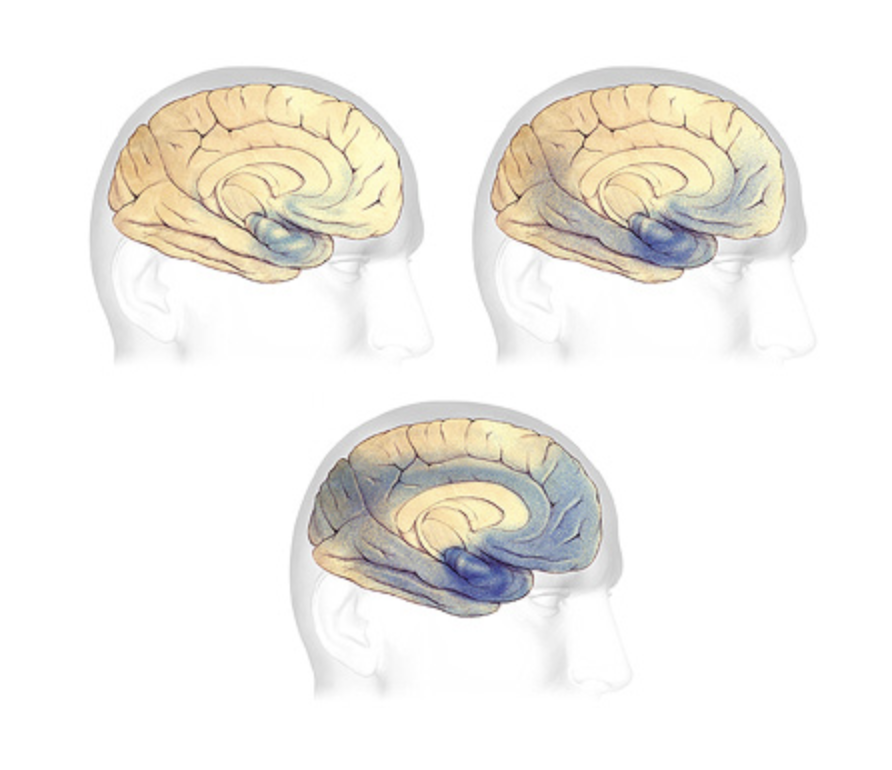Alzheimer’s disease is one of the most devastating diagnoses a person and their family can receive. Knowing the months and years ahead will lead to the loss of both long and short-term memory, decreased mental capacity and an inability to care for themselves on their own is daunting. But what if preventing Alzheimer’s disease in the years to come is as simple as treating gum disease now?
What is Gum Disease?
At any given moment your mouth is full of bacteria. When combined with food particles and saliva, these bacteria form a sticky plaque that can build up along your teeth and gums. If this plaque is not removed with regular brushing and flossing, it hardens into tartar which must be removed by a dental professional. The longer plaque and tartar sit on your teeth and gums, the more likely you are to develop periodontal disease. If left untreated, gum disease not only leads to bleeding gums, pain and tooth loss, it can be harmful to your overall health. Studies have linked poor dental health to an increased risk of heart disease, pregnancy complications and higher A1C levels for those with diabetes.
What is Alzheimer‘s disease?
Alzheimer’s disease is the most common form of dementia, accounting for 60 to 80 percent of all cases. Once used as a generic term for memory loss, researchers have discovered on autopsy and through MRI that Alzheimer’s disease is a progressive formulation of plaques and tangles in the brain’s structure. Plaques are protein deposits that build up in the spaces between nerve cells, preventing them from transmitting information. Tangles are twists of protein fibers that build up inside of the nerve cells in the brain. As these tangles and plaques grow, they interfere with the brain’s ability to recall short-term information, then long -term information, and finally the person’s ability to communicate and care for themselves. While researchers have found ways to slow the disease’s progression, they are still searching for a cure as well as a cause.

The link between diseases
There is a growing connection between a bacterium called Porphyromonas gingivalis – or P. gingivalis, commonly associated with gum disease, and Alzheimer’s disease. P. gingivalis is the bacteria responsible for tooth decay as well as gingivitis – the earliest form of gum disease. In a landmark study by the University of Central Lancashire in the UK found the presence of P. gingivalis in the brains of deceased Alzheimer’s patients. These findings prompted other studies which discovered Alzheimer’s-like symptoms in mice who had P. gingivalis introduced to their bloodstream. As the connection between Alzheimer’s disease and gum disease strengthens, the question becomes how to treat one in order to prevent the other.
Better oral health = Better overall health
Dr. Mike Rostami, a periodontist at Greater Baltimore Prosthodontics said, “For decades there has been an association between periodontal disease, heart disease, and diabetes. We know that if we control periodontal disease we get a 10% improvement in the hbA1C level and visavera. Although it is still early, the research is pointing to porphyromonas gingivalis as a cause of plaque build-up in the brain that is seen with Alzheimer’s. Patients should not treat their periodontal disease just to avoid Alzheimer’s but also to save their teeth, have a better quality of life, have good breath, and to help prevent or treat many other systemic diseases associated with periodontal disease.“
The key to better oral health lies in our daily habits. Brushing and flossing daily helps remove plaque buildup and keeps P. gingivalis from invading the bloodstream. Regular dentist visits to remove tartar buildup in hard to reach places can also prevent gum disease in many patients. However, good dental hygiene is not enough to treat active and advanced periodontal disease. What’s more, treating gum disease improperly can introduce dangerous P. gingivalis into the bloodstream and increase the risk of developing Alzheimer’s disease. Periodontists are specialists at treating active and advanced gum disease that exceeds the expertise of a typical dentist. Armed with the latest expertise and tools for safely treating gum disease, a periodontist can help minimize the risk of memory complications while preventing tooth loss and improving a patient’s quality of life.
Call Greater Baltimore Prosthodontics for your consultation and take the first step to treating your gum disease and protecting your brain’s long-term health.

